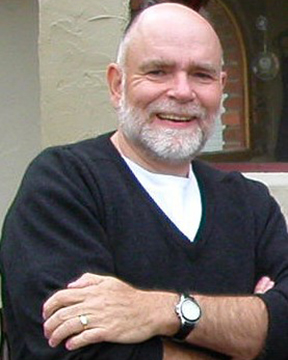
Michael Campana, of Oregon State University, will present “Harvesting Glacial Meltwater with Managed Aquifer Recharge” at 10:30 a.m. Thursday, March 28 in the East Campus Union Sycamore Room as part of the Spring 2019 Water Seminar Series.
The lecture will be livestreamed, but also will be available online for later viewing within a week of the lecture.
The series is organized and sponsored by the School of Natural Resources and the Nebraska Water Center, part of the Daugherty Water for Food Global Institute, with support from Institute of Agriculture and Natural Resources.
Abstract:
In response to global warming, some mountain glaciers are melting at accelerated rates. This is not unique to exotic locales such as the Andes and Himalayas; some permanent glaciers in North America are shrinking and some are en route to extinction. In the USA the best example of this phenomenon is Glacier National Park in Montana, which could be glacier-free by the middle of this century. In western Oregon and Washington some of the highest elevations in the Cascade Range are losing permanent glaciers. Glaciers provide humanity and natural ecosystems with 'free storage' of freshwater and parcel out water to maintain and replenish freshwater supplies. During the warm season, glacial meltwater nourishes lower elevation ecosystems and human settlements and recharges aquifers. Replenishment of the glacier normally occurs during the cooler seasons; the cycle then repeats itself. Ideally, one would like a balance: the glacial ice melting in the summer would be replaced by cold weather precipitation. When the melting exceeds the replenishment, the equilibrium is destroyed. The volume of the glacier shrinks, and if the disequilibrium continues, the glacier will disappear entirely. Managed Aquifer Recharge (MAR) could capture 'excess' meltwater – the amount coming out of storage that is available – before the glacier disappears altogether. Such groundwater storage would not be a permanent, sustainable solution to freshwater shortages, but might provide time to permit the development of alternatives to ensure survival of ecosystems and humans. The presentation will explore some of the advantages and disadvantages of subsurface storage to salvage glacial meltwater and speculate where such schemes might work and would be needed, including a recent project in the Yakima Valley, Washington, USA.
About the speaker
Michael ‘Aquadoc' Campana is a professor of Hydrogeology and Water Resources Management in Geography in the College of Earth, Ocean, and Atmospheric Sciences at Oregon State University. He is a prolific scientist and outspoken author with expertise in hydrogeology, hydrophilanthropy, and water resources and interests ranging from transboundary groundwater resources, integrated and sustainable water resources management, to water, sanitation and hygiene (WaSH) in developing regions, as well as regional hydrogeology, science-policy interface and communications. His blog and Twitter “WaterWired” pages promote opportunities and ideas for young professional in water resources disciplines across the globe.